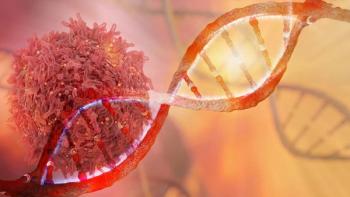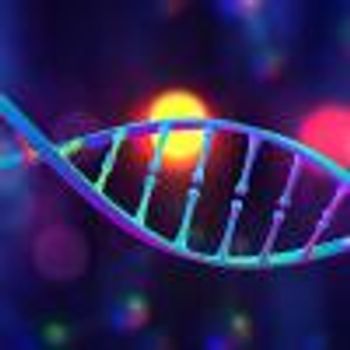
G-CSF May Have Antitumor Benefits When Combined With Radiation Therapy
Combining targeted radiation therapy with a neutrophil stimulant may enhance antitumor immunity, according to new research published in the Proceedings of the National Academy of Science of the United States of America.
Combining targeted radiation therapy with a neutrophil stimulant may enhance antitumor immunity, according to new research
Investigators in Texas report they were able to enhance the tumor killing capacity of the recruited tumor-associated neutrophils (RT-Ns) by administering G-CSF (granulocyte-colony stimulating factor). They found that the combination of G-CSF and RT-Ns appeared to enhance the antitumor immune response, presumably by inducing a more robust neutrophil response.
They theorize that radiation therapy targeted against a tumor can act as a cancer vaccine by causing neutrophil-mediated tumor cell death that alerts the immune system to fight the cancer cells at other anatomical sites. The abscopal effect, in which radiation therapy delivered to a primary site of cancer also results in shrinkage or elimination of cancer cells in nonirradiated metastatic sites, has been observed for decades.
“The abscopal effect is only seen sporadically, but when it does happen, the effect induces a long-lasting, antitumor response in patients,” said senior author Raquibul Hannan, MD, PhD, who is an Assistant Professor of Radiation Oncology at the Comprehensive Cancer Center at the University of Texas (UT) Southwestern, in a
Dr. Hannan said the results from this study support the notion of evaluating the combined use of radiation therapy and G-CSF in preclinical and clinical settings. He said a long-term goal is to eliminate the sporadic nature of the abscopal effect of radiation therapy and dependably induce the response in all possible cases.
The researchers examined the early immunological effects of radiation therapy in the tumor microenvironment using several syngeneic mouse tumor models. They found that radiation therapy induced sterile inflammation with a rapid and transient infiltration of CD11b+Gr-1high+ neutrophils into the tumors. RT-Ns showed an increased production of reactive oxygen species and induced apoptosis of tumor cells, according to the report.
In the absence of radiotherapy, cancer cells transform neutrophils into tumor-associated neutrophils (TANs) to help promote cancer cell growth. Radiation therapy, in addition to destroying TANs, recruits new neutrophils into the tumor. The radiation-induced neutrophils RT-Ns attack the tumor cells by producing molecules that damage them. The study further demonstrated how RT-Ns are also key players in generating a downstream tumor-specific, T-cell-mediated antitumor immune response.
Lead author Tsuguhide Takeshima, PhD, who is an Instructor in Radiation Oncology at UT Southwestern, said this is the first study to identify RT-Ns and to demonstrate their antitumor activity via both innate and adaptive immune responses. The researchers hope these finding are easily translatable to the clinic since G-CSF already is routinely used to treat neutropenia.
Newsletter
Stay up to date on recent advances in the multidisciplinary approach to cancer.



































